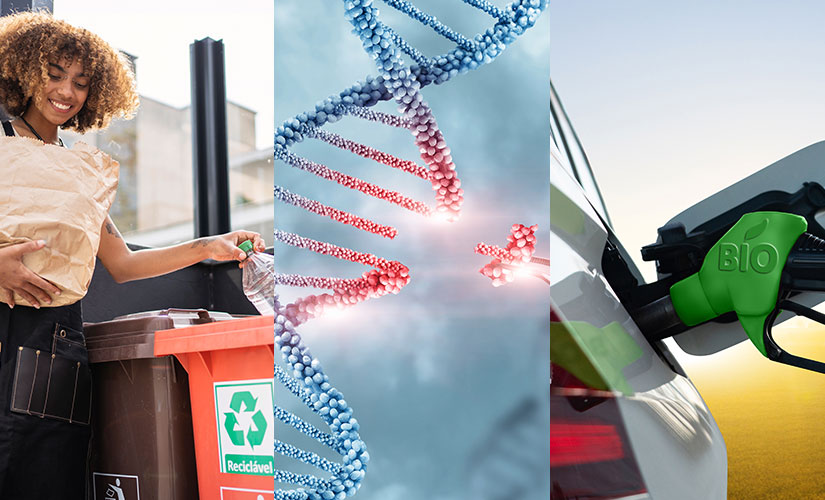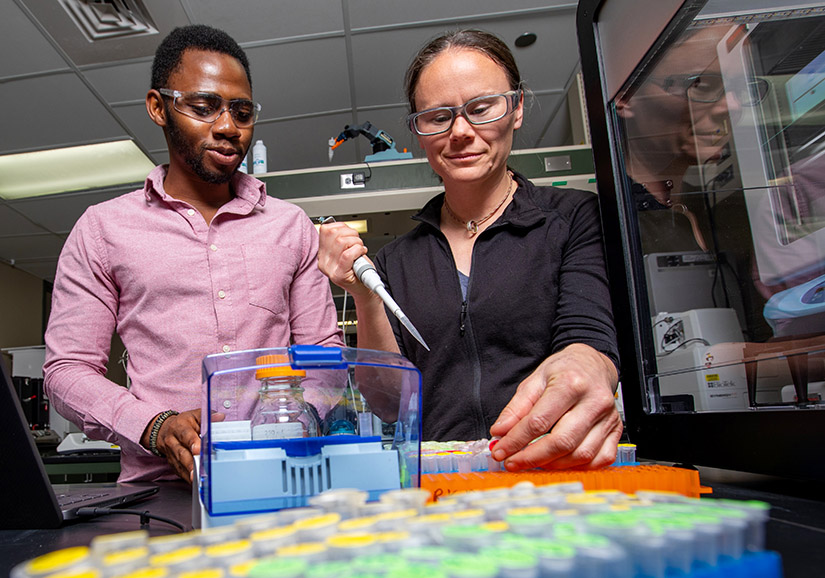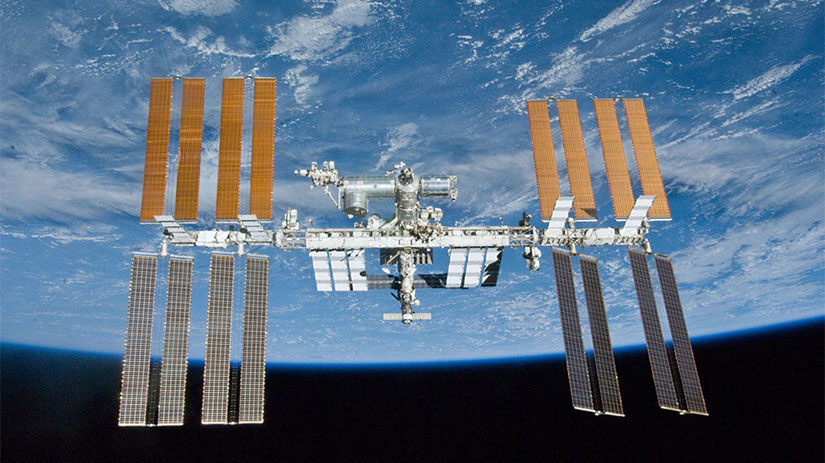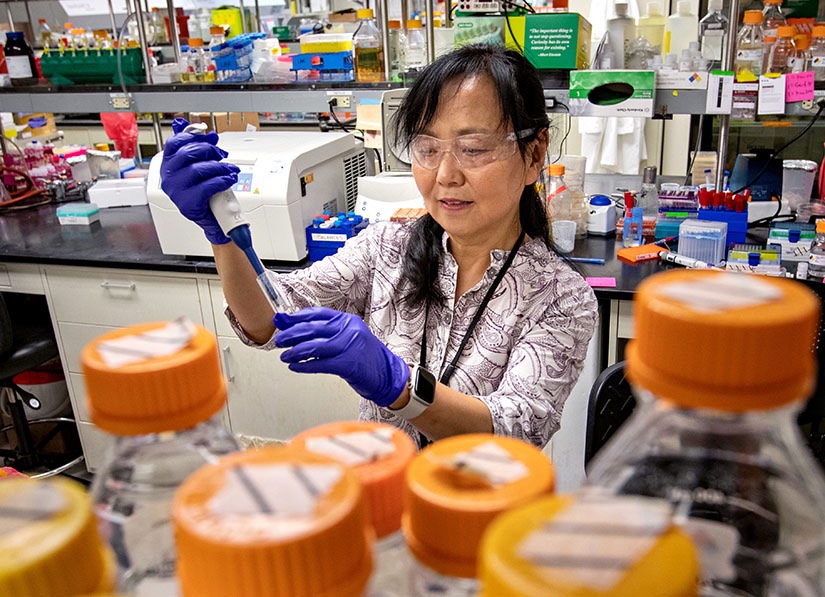Happy National Bioenergy Day 2023 From NREL

Join the U.S. Department of Energy's (DOE's) National Renewable Energy Laboratory (NREL) in celebrating National Bioenergy Day on Oct. 18, 2023. Over the past year, NREL’s bioenergy researchers have been hard at work developing innovative and eco-friendly processes to turn plant waste and other bio-based resources into sustainable energy, fuels, and products.
To commemorate these achievements, learn more about 11 exciting bioenergy-related projects at NREL.
Partnership Lays Groundwork for Future Aerial Ride-Hailing Industry
Joby Aviation worked with NREL to determine the environmental impacts of its future all-electric aerial ride-hailing service. NREL’s life cycle analysis examined every aspect of the all-electric vertical take-off and landing aircraft supply chain, from the manufacturing process to retirement. The case study provides guidance on developing eco-conscious practices and serves as a model for the growing industry.

NREL research helped Joby Aviation proactively document its sustainability efforts for increased transparency, improved services, and to boost its competitive edge. Photo from Joby Aviation
Scientists Characterize Enzyme for More Efficient Routes to Bioproducts
Researchers from NREL and its partners characterized an enzyme involved in making pectin, a key component in making plants flexible and strong. This finding helps researchers understand how plant enzymes work together to build complex polymers, with a goal of someday modifying these polymers to create biomass with optimal properties for conversion into sustainable biofuels and bioproducts.
New Consortium Aims To Make Fuel From Renewable Electricity and CO2
NREL leads a new multilaboratory team of researchers working to unlock the potential of carbon dioxide (CO₂) electrolyzers and other technologies that enable e-fuels. The CO₂ Reduction and Upgrading for e-Fuels Consortium aspires to help biorefineries reduce emissions while producing millions more gallons of fuel.
Scientists Discover Enzymes To Enable Cheaper Plastic Recycling vs. Producing From Petroleum
Scientists from NREL and its partners used machine learning and synthetic biology to discover new enzyme variants that can deconstruct even the toughest plastic waste, polyethylene terephthalate (PET), without extra preprocessing. This advanced recycling strategy could soon apply to all forms of PET and become cheaper than making PET from scratch with petroleum.

Researchers Japheth Gado (left), Erika Erickson (right), and colleagues have discovered and characterized enzymes that degrade crystalline PET, a plastic used in single-use beverage bottles, carpeting, clothing, and food packaging. Photo by Werner Slocum, NREL
Partnership Uses Machine Learning To Advance Biofuel Technologies
NREL and collaborators have teamed up to identify solutions for decarbonizing fuel and chemical production. The partnership is using genome engineering and machine learning to create carbon-consuming bacteria capable of producing viable industrial-scale biofuels. Results can transform the fuel and chemical manufacturing industry—a major source of greenhouse gas emissions.
Enzymes and Bacteria Sent to Space on Mission To Upcycle Plastics
NREL and partners sent a plastic-degrading enzyme and an engineered bacterial strain into space with an important mission: to convert waste plastics to upcycled materials during spaceflight. Results from the experiment will show how conditions in space, like microgravity and radiation, affect biological plastic degradation and upcycling.

NREL and collaborators designed a special space capsule for autonomous culturing while aboard the International Space Station. Image from NASA
Scientists Turn Seaweed Into Sustainable Aviation Fuel and Batteries
Working with a collaboration of researchers, NREL aims to turn seaweed and wood waste into sustainable aviation fuel and graphite, a material used in electric vehicle batteries. The team plans to adapt biological conversion and graphitization technologies to harness an estimated 1.24 million dry tons of sargassum from populated coastlines annually. Combined with 75% wood waste, the supply chain could yield up to 78 million gallons of sustainable aviation fuel and 61,000 tons of graphite every year.
Framework Compares Plastic Recycling Strategies by Material
There is no one-size-fits-all approach to recycling the many varieties of plastic waste. Researchers at NREL examined the benefits and trade-offs of current and emerging recycling technologies to determine the most effective closed-loop recycling strategies for common plastics. The team considered technical metrics such as material quality and retention, as well as environmental metrics including energy use and greenhouse gas emissions.
Partnership Receives Funding To Commercialize Fermentation Process
NREL and Crysalis Biosciences (formerly BioPrincipia) are partnering to scale NREL's fermentation process for producing 2,3-butanediol—a chemical that can be upgraded to new, low-carbon, and sustainable biopolymers, chemicals, and fuels. The fermentation process uses a sugar feedstock found in Crysalis Biosciences’ waste stream, greatly reducing environmental and economic barriers and paving the way for sustainable aviation fuel.

NREL molecular biology researcher Min Zhang has devoted much of her career to developing Zymomonas mobilis, the bacterium used in NREL’s fermentation process to create 2,3-butanediol. Photo by Werner Slocum, NREL
National Lab Collaboration Uncovers Cost-Competitive Biofuels
Analysis performed by a collaboration of national laboratories including NREL has identified biofuels made from organic materials like plants and agricultural waste that can be a cheaper alternative to petroleum-derived fuel. When combined with advanced engine design, these biofuels could also reduce greenhouse gas emissions by more than 60%, improve fuel performance, and reduce tailpipe emissions in cars and trucks.
BOTTLE Develops New Strategy To Valorize Mixed Plastic Waste
Combining chemical and biological processes is a promising new strategy for the valorization of mixed plastic waste, according to researchers with the NREL-led Bio-Optimized Technologies to keep Thermoplastics out of Landfills and the Environment Consortium (BOTTLE). A new process developed by BOTTLE researchers can convert mixed plastics to a single chemical product, working toward a solution that would allow recyclers to skip sorting plastic by type.
Learn more about NREL’s bioenergy research.
Last Updated May 28, 2025
